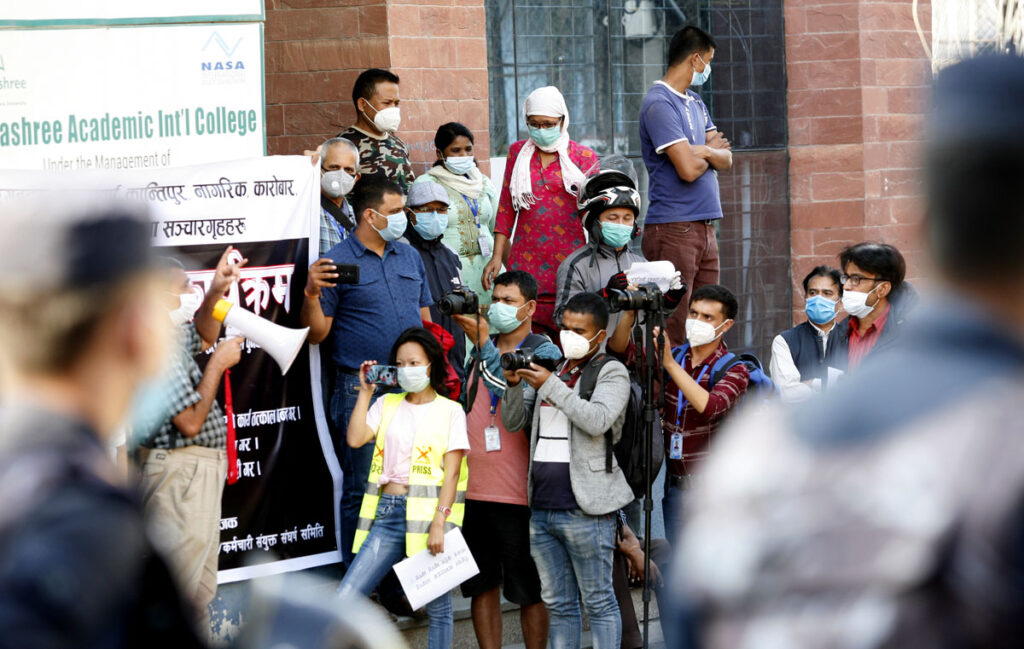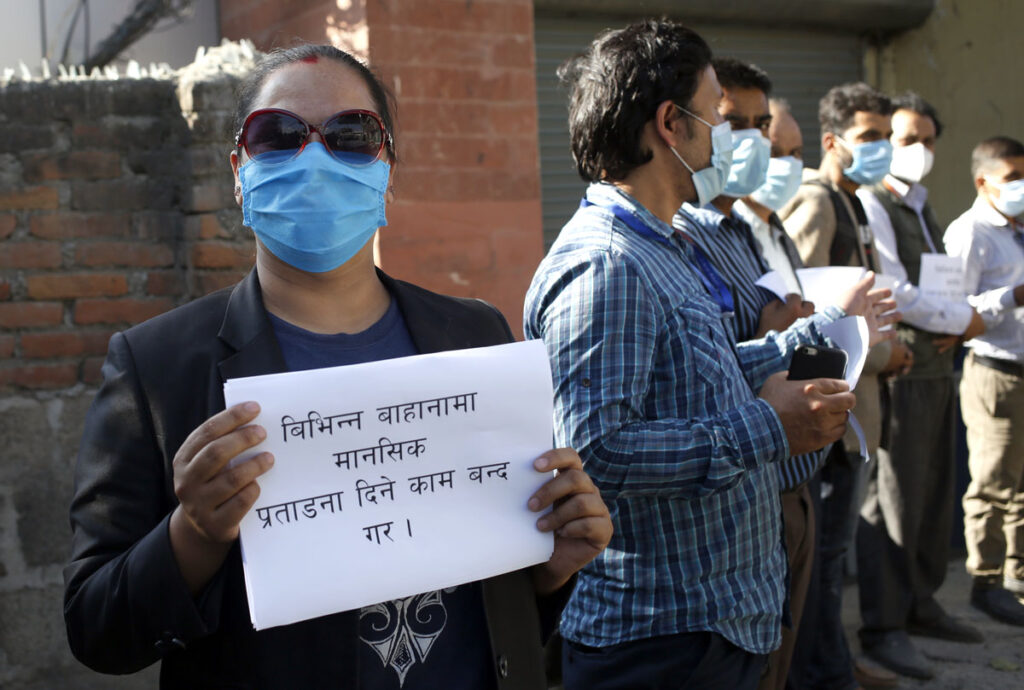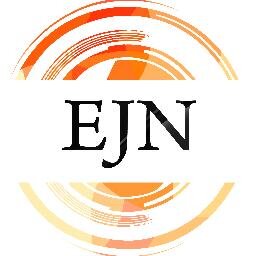On March 24, 2020, a few days after the first coronavirus case was detected, Nepal went into lockdown. Only a day before, I had initiated a discussion at Annapurna Post, where I was the photo editor, on how to continue working in case of lockdown.
I was concerned because photojournalism as profession demands work in field. I had more responsibilities as I was also leading the photojournalists’ union – the Photojournalists’ Club, an associate union of IFJ-affiliated Federation of Nepali Journalists (FNJ). The club issued a 10-point guideline based on the WHO protocol and requested media houses to provide safety equipment for photojournalists.
Like every other family, my family was also scared of coronavirus, which was aggravated by the nature of my work. The fear that I may transmit infection to my family always indirectly impacted my work. It became routine to carry of packet of instant noodles and a bottle of water, leave home early and return late and upon return, leave my clothes and equipment in a separate room and spray sanitizer on them.
My family tried to persuade me to leave the job, but I felt a responsibility to tell the public about what was happening around them. However, when my publication did not provide the safety equipment and even didn’t pay my salary on time, it became hard. Through the club, with donations, we collected 3,000 face masks, 500 sanitizers and provided all photojournalists and their family members with coronavirus infection insurance.

Journalists in Nepal demonstrate in front of media house protesting salary cuts and illegal job terminations during the Covid-19 pandemic. Credit: Photojournalists Club Nepal
In late April, my publication announced a 50 per cent salary cut despite protests from the chief editor, bureau chiefs and myself. Even our halved salary was not paid for three months but I continued with my duty. The chief editor resigned over the disagreement and after the new editor was appointed, remote login to office system was cut for me and five other journalists. Our salary remained unpaid and six of us were transferred to a newly-formed special investigative bureau and were targeted for opposing salary cuts. The FNJ which took up these issues on our behalf.
I continued submitting photos through email but we were transferred to remotest part of the country and asked to leave immediately even though there was no transport due to the lockdown. While carrying out my professional duties, fighting for our rights, supporting other photojournalists and staff of Nagarik who were on a sit-demanding their salary, I contracted coronavirus. Though I had followed all safety protocols – wearing masks at all times, using sanitizer and keeping distance – during a late dinner, I noticed I had lost my sense of taste. Thankfully, my wife had taken my little son to her parental house a week ago, so I was sure I did not transmit it to them, but difficult days were ahead.
Coronavirus infection caused health problems that I had not experienced before: headache, fever, loss of taste and tiredness. And, then there was the psychological side of it: the fear that anything could happen. I obsessively checked my temperature and oxygen levels every hour. All this at a time when I was receiving letters with threats from my office.

A female journalists demonstrates in front of a Nepalese media house protesting salary cuts and illegal job terminations during the Covid-19 pandemic. Credit: Photojournalists Club Nepal
I decided to move into hotel isolation despite it being costlier because I thought if there was an emergency, the hotel staff would be trained to take me to the hospital, and there were some Covid-19 positive journalist friends staying there. The isolation was difficult because I was on my own wondering about what lay ahead. At times, I even thought I might not live to see the future. The helplessness – being unable to do anything to improve your health, not knowing what helps and waiting for an unknown future – was difficult to bear.
After a week or so, I was tested Covid negative and I could finally walk out of isolation and meet my family. But I was still feeling weak, and I had to continue fighting for my rights and dues at the Annapurna Post.
We had a case at the Labor Court, we had a complaint at the Office of the Press Registrar, and the FNJ and journalist community was with us in the struggle. The Working Journalists Act has never been fully implemented, but we were glad that it had enough provisions that protects journalists if we continue our fight in the court of law. Sit-ins and protest actions continued alongside.
The Annapurna Post finally negotiated. Although less than our rightful dues, it was a victory for journalists, the FNJ and the community. I have since resigned from the Annapurna Post and have been elected as the Central Committee member of the FNJ and I will continue to fight for the rights of the journalists.
(The author, a founding member of CMR-Nepal, is the Central Committee member of Federation of Nepali Journalists (FNJ) and the immediate past president of the Photojournalist’s Club Nepal.)
This article is originally published in the 19th Annual South Asia Press Freedom Report – Truth in a time of contagion: The Viral Frontline, by the International Federation of Journalists.








